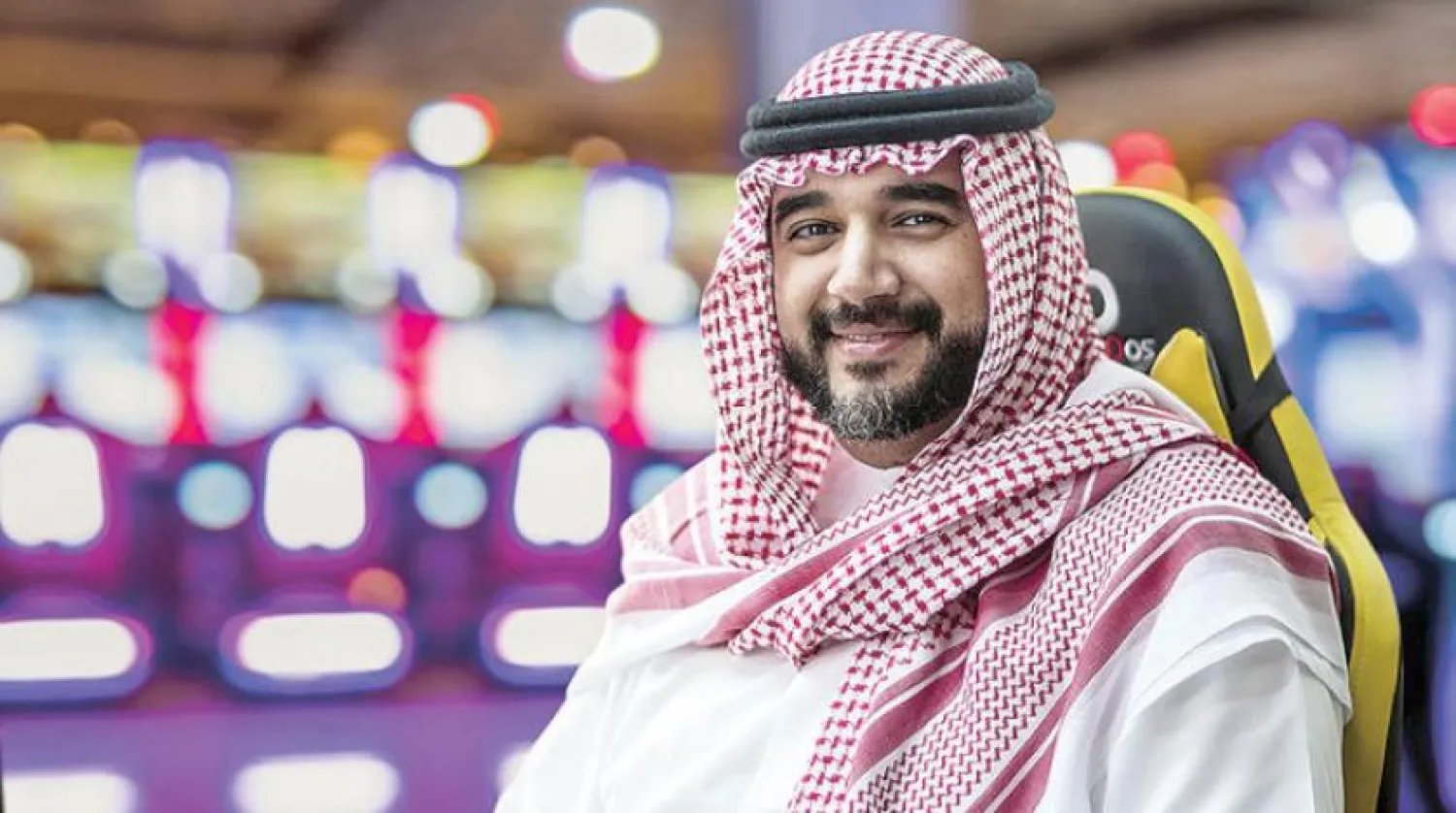President of the Saudi Arabian Federation for Electronic Sports (SAFEIS) Prince Faisal bin Bandar bin Sultan bin Abdulaziz revealed that revenues from the electronic games market in the Kingdom top 576 million dollars annually.
In an exclusive interview to Asharq Al-Awsat, he said this figure motivates the field to become more productive and to create more ideas to further increase revenues. On the global scale, gaming revenues reached 1.1 billion dollars in 2019, a 27 percent increase from 2018.
Prince Faisal revealed that statistics at the SAFEIS indicate that some 6 million amateur gamers are present in the Kingdom. In other words, these gamers do not have a contract agreement with a sports club that is registered at the federation. The federation boasts 35 clubs. Globally, 1.2 billion gamers were confirmed in 2020, while viewers of eSports are constantly rising. Nearly half a billion people have tuned in to watch eSports this year, compared to 335 million in 2017.
Moreover, Prince Faisal revealed that talks are ongoing with the Ministry of Education to develop curricula and scholarships related to eSports. Studies are ongoing over how to take advantage of the youths’ interest in eSports and to develop a teaching mechanism and best healthy practices related to this sector.
Talks are also ongoing with the Ministry of Communications and Information Technology to improve the quality of internet services in some parts of the Kingdom and to motivate game developers to enter the Saudi market. The aim is to eventually attract developers so that the Kingdom could be transformed into a hub for the Middle East.
In the three years since its establishment, said Prince Faisal, the federation has developed the eSports sector in the Kingdom starting from nurturing the professional and social competition environment to motivating investors to promote growth in the sector.
The federation hosted Gamers Without Borders, the world’s biggest charity eSports festival in 2020. Prizes totaled 10 million dollars and they were donated by winners to 12 charities that are dedicated to combating COVID-19, he told Asharq Al-Awsat.
Over 460,000 players from 141 countries took part in the tournament and over 14 million viewers tuned in. The winnings were given to UNICEF, Direct Relief, GAVI, and International Medical Corps and others.
The federation hosted the Fortnite Middle East and North Africa tournament that was launched by the International Esports Federation (IESF). Saudi Arabia won first and second place at the event, he added.
These victories demonstrate the talent and potential boasted by Saudis in the eSports sector, he remarked. “It motivates us to offer more support to nurture these talents. We have a clear plan to transform Saudi Arabia into a global pioneer in eSports.”
Given that children and youths are very interested in eSports, the federation has been keen on forging a special relationship with the Ministry of Health, continued Prince Faisal. It has offered several successful initiatives and programs, including the universities league that was organized in cooperation with the Saudi Universities League. Plans are in place to hold the second edition of the event in 2022. Discussions are also underway to develop curricula and scholarships related to eSports.
Commenting on the Saudi eSports League, Prince Faisal said that the second edition of the event was held and it has witnessed remarkable development since its launch. Channels have started to broadcast the competition in full and in a professional manner. “Plans are definitely in place to expand to hold global championships and we are aiming to develop the fanbase for it. The aim is to reach a professional and competitive level at international eSports events.”
Returning to Gamers Without Borders, Prince Faisal said the 2021 edition of the event will be held under the slogan “One world, one body”. It seeks to help needy countries access the COVID-19 vaccines through donating the prize money to the King Salman Humanitarian Aid and Relief Center (KSRelief). The center will in turn offer it to global parties that will send the vaccines to countries in need. Furthermore, the event will feature an educational platform, organized in cooperation with the Ministry of Communications and Information Technology, that will offer free courses that will help interested people build their professional careers around eSports.
Prince Faisal highlighted the significance of events such as Gamers Without Borders that bring together gamers from throughout the world, regardless of race, culture and religion, all with the same charity goal.
Given the Saudi interest in eSports, the federation is seeking to build a complete sector that allows gamers to compete on a professional level, continued Prince Faisal. This will in turn reap economic benefits and increase the level of competitiveness that will transform the Kingdom into a regional and international eSports hub.
“The opportunities are endless,” he stressed, which confirms the federation’s goal to develop the sector in line with Vision 2030 that seeks to achieve real and comprehensive development that supports the national economy.
Coming to statistics, Saudi Arabia ranks first globally in the FIFA eWorld Cup, winning the title in 2015, 2018 and 2019. Eight of the ten gamers from West Asia are Saudi, he added. The Kingdom boasts over 300 professional gamers, who have a contract with an official club. The Saudi eSports league also includes resident non-Saudis.
Overall, said Prince Faisal, the Kingdom’s higher leadership has shown great interest in various forms of sports. Minister of Sports and head of the Saudi Arabian Olympic Committee Prince Abdulaziz bin Turki al-Faisal is also constantly following up on the sector.
“This in turn motivates us to achieve the eSports goals and aspirations of our nation,” stressed Prince Faisal.










